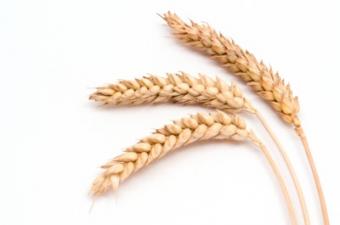
If you're looking for foods high in vitamin E, a potent, fat-soluble antioxidant, you've come to the right place. Incorporating foods high in this important nutrient into daily living is easy, especially when adequate levels are available in a wide variety of grocery items. Keep the following list handy during your next supermarket trip and you will see how simple it is to select foods rich in vitamin E.
List of Foods Rich in Vitamin E
While a healthy, balanced diet should provide enough vitamin E, extra supplementation may occasionally necessary. This can easily be obtained through foods that contain high levels of this important vitamin. Speak to your physician if you have questions about your vitamin E intake.
Add a few of the following items to your daily food intake and rest assured you are getting sufficient amounts of this incredible antioxidant.
Plant-based Oils
Generally speaking, many naturally occurring plant-based oils contain vitamin E. Keep in mind that heating these oils tends to destroy vitamin E levels, so drizzling them over a salad or in food is a better option. Here are a few oils to consider:
- Corn oil
- Soybean oil
- Cotton seed oil
- Safflower oil
- Sunflower oil
- Wheat germ oil
- Oil from various nuts
Nuts
Nuts are particularly high in vitamin E, and contain more than fruits, vegetables and whole grains.
- Sunflower seeds
- Almonds
- Hazelnuts or Filberts
- Pine nuts
- Peanuts (including peanut butter)
- Brazil nuts
Vegetables and Fruit
Many people are surprised to learn how many fruits and vegetables contain notable levels of vitamin E. Here are some of the most popular:
- Spinach
- Tomato
- Carrot juice
- Pumpkin
- Sweet Potato
- Broccoli
- Red Peppers
- Asparagus
- Mango
- Papaya
- Kiwi
Grains
When refined grains, such as cereals, are processed, the vitamin E content decreases. For this reason, most cereal is fortified with vitamin E after processing takes place. Cereal is one of the major sources of vitamin E in the average diet, with the following cereal brands containing the highest amounts.
- General Mills Raisin Bran - 24.5 mg per serving
- General Mills Corn Flakes - 45 mg per serving
- General Mills Whole Grain Total - 45 mg per serving
- Kellogg's Special K - 15 mg per serving
- Kellogg's Complete Wheat Bran Flakes - 46.35 mg per serving
- General Mills Multi-grain Cheerios - 46.55 mg per serving
- Kashi Heart to Heart Instant Oatmeal, Apple Cinnamon - 46.9 mg per serving
Are You Getting Enough Vitamin E?
While a mild vitamin E deficiency may be difficult to detect, a severe vitamin E deficiency may be difficult to ignore. If you are suffering from a disease of the liver, gall bladder, pancreas or intestines, this can result in a mild vitamin E deficiency. As well, if you eat a low-quality diet that is high in processed foods, this is also opening the door to potential vitamin E deficiency.
If you believe you're deficient in this essential nutrient you should visit your doctor to have a blood test. A blood test is the only conclusive way to measure your vitamin E levels, and your doctor is the only one who can order this test. Eating a healthy, balanced diet is a great way to make sure you're getting all the nutrients you need to stay healthy. Vitamin E is just one of the many vitamins you need every day to stay on top of your game.







